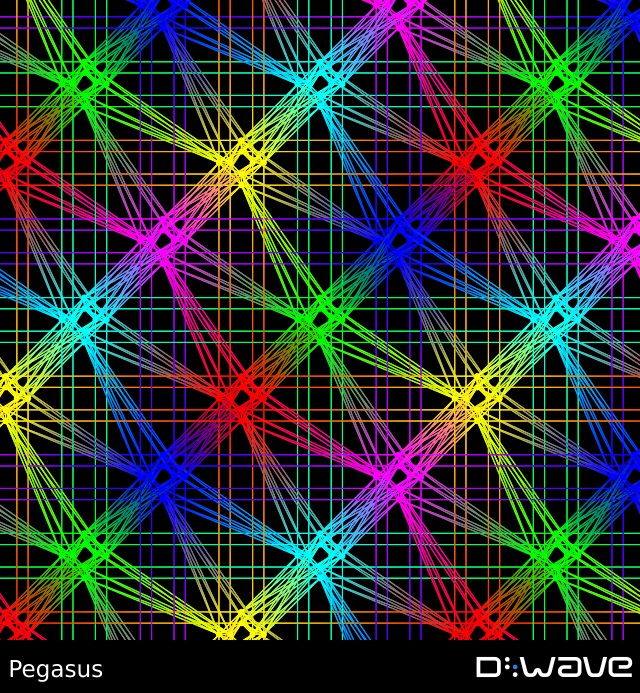D-Wave's Next-Gen Quantum Computing Platform Promises 2.5x Better Connectivity
D-Wave, Canadian maker of the quantum annealing computer used by Google, NASA and Volkswagen, announced its next-generation quantum annealing platform today. It brings a brand new qubit topology, called Pegasus, which the company claims is the most connected of any commercial quantum system in the world, as well as support for 5,000 qubits.
New Pegasus Qubit Topology
With the Pegasus topology each qubit (or quantum bit, the most basic form of quantum information) is connected to 15 other qubits. This is a 2.5x increase in connectivity compared to the company’s previous topology, Chimera. It's supposed to enable the embedding of larger problems with fewer physical qubits than the Chimera topology.
Another one of the benefits of the Pegasus topology is that it's quieter than all the commercially available D-Wave quantum processing units (QPUs).
Furthermore, the new D-Wave platform comes with over 5,000 qubits, more than 2.5 times what the previous D-Wave 2000Q generation had (2,000 qubits). The much higher number of qubits combined with the much higher connectivity should enable quantum programmers to tackle more complex platforms.
New Software Tools
The new D-Wave platform will also arrive with improved software tools within the Ocean SDK, which allows developers to code for hybrid classical and quantum systems using familiar programming languages, such as Python and C.
Interested parties, such as third-party developers, research institutes and businesses, can take advantage of D-Wave’s flexible paid access packages to purchase hours of cloud access to the company’s new systems. They can also start testing the new Pegasus topology today.
Various upgrades of the existing D-Wave QPU and software tools will be made available between now and mid-2020, but the full new platform will be available in the second half of 2020.
Get Tom's Hardware's best news and in-depth reviews, straight to your inbox.
Lucian Armasu is a Contributing Writer for Tom's Hardware US. He covers software news and the issues surrounding privacy and security.
